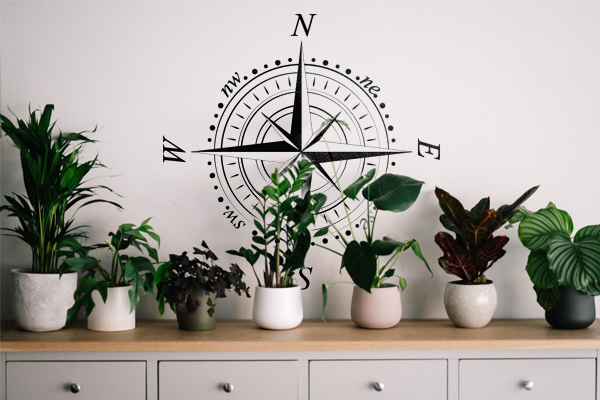
Vastu Shastra: Best Plants for Your Home
Based on the ancient Indian science of Vastu Shastra, Residential Vastu Shastra places a strong emphasis on the placement and selection of plants as essential to achieving balance between internal and external forces. Using specific plants in your home in accordance with these ideas will improve positivity, prosperity, and general well-being. Let’s look at the plants that Vastu Shastra suggests growing to create an ideal and prosperous atmosphere.
Understanding Vastu Shastra Principles
According to the Vastu Shastra, the five elements of earth, water, fire, air, and space must be in balance for harmony and good energy to flow through space. Because they filter the air and encourage calm, plants are thought to draw positive energy and improve people’s general well-being.
Guidelines For Choosing Plants According to Vastu Shastra
According to Vastu Shastra, when choosing plants for your house, you should take into account a number of factors to make sure they improve the energy and atmosphere of your living area:
According to Vastu Shastra, plants have particular significance based on their attributes and traditional wisdom. For example:
Tulsi (Holy Basil): Tulsi, revered for its spiritual importance and environmental cleansing properties, is frequently positioned in the northeast or east to draw prana, or positive energy, and foster prosperity and good health.
Areca Palm Plant: Areca palms are common houseplants for living rooms and bedrooms. The majority of homes have front doors, so planting an areca palm near one—especially one that faces west—will make the space feel airy and bright. The Areca Palm makes the ideal addition to the front door of any house. This plant brings luck and fortune.
Peace Lily: Peace Lily is appropriate for spaces where calm and serenity are desired, like bedrooms or meditation areas, because of its reputation for air-purifying qualities and capacity to create a peaceful atmosphere.
According to Vastu Shastra, plants have particular significance based on their attributes and traditional wisdom. For example:
Tulsi (Holy Basil): Tulsi, revered for its spiritual importance and environmental cleansing properties, is frequently positioned in the northeast or east to draw prana, or positive energy, and foster prosperity and good health.
Areca Palm Plant: Areca palms are common houseplants for living rooms and bedrooms. The majority of homes have front doors, so planting an areca palm near one—especially one that faces west—will make the space feel airy and bright. The Areca Palm makes the ideal addition to the front door of any house. This plant brings luck and fortune.
Peace Lily: Peace Lily is appropriate for spaces where calm and serenity are desired, like bedrooms or meditation areas, because of its reputation for air-purifying qualities and capacity to create a peaceful atmosphere.



According to Vastu Shastra, the direction, and location where plants are placed within the home can significantly influence their effects:
- Favorable Directions: Light plantations in the north and heavy plantations in the southwest are recommended. Additionally, placing flowers in the southeast and a water plant in the northwest is beneficial.
Consider the overall aesthetic and functional aspects of your home when selecting plants. Choose plants that complement your interior decor while aligning with Vastu principles to create a harmonious living environment.
Ensure that you can provide adequate care and maintenance for the plants you choose. Regular watering, pruning, and proper sunlight exposure are crucial for their health and longevity, thereby maximizing their positive impact on your home’s energy.
Benefits of Vastu Shastra-Compatible Plants
- Enhanced Positive Energy: These plants are believed to harmonize the flow of energy within the home, creating a positive and vibrant atmosphere.
- Improved Health: Plants like Tulsi and Peace Lily contribute to cleaner indoor air, promoting better respiratory health and overall well-being.
- Financial Prosperity: According to Vastu principles, the money plant is associated with attracting wealth and economic stability when placed correctly.
- Psychological Benefits: The presence of greenery and well-maintained plants can reduce stress, improve mood, and increase productivity.
Maintaining Vastu Shastra Plants
To ensure that these plants provide you with maximum benefits, you must:
- Regular Care: Determine that each plant receives the right amount of sunlight, water, and cutting.
- Cleanliness: Keep plant containers and surrounding areas clean to avoid letting energy slow down.
Conclusion
Adding plants that are in accordance with Residential Vastu Shastra not only improves the aesthetic appeal of your house but also helps create a balanced and harmonious living space.
By following these guidelines and paying attention to the placement of your plants, you can utilize the positive energy of nature to make the right decisions, attract wealth, and create a generally happy environment in your home.


